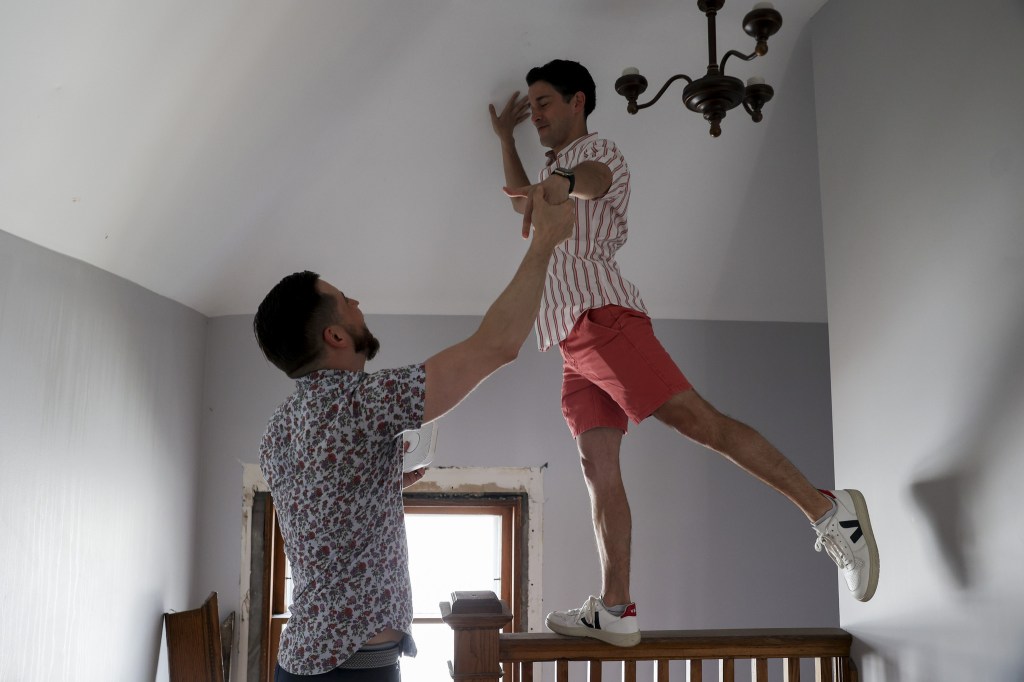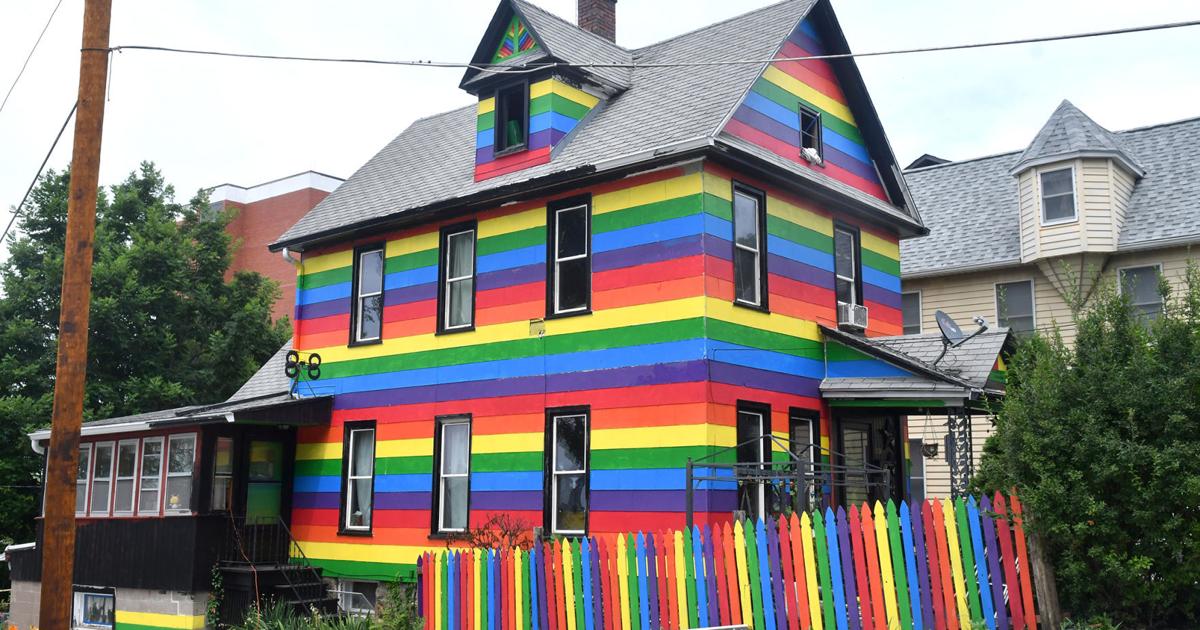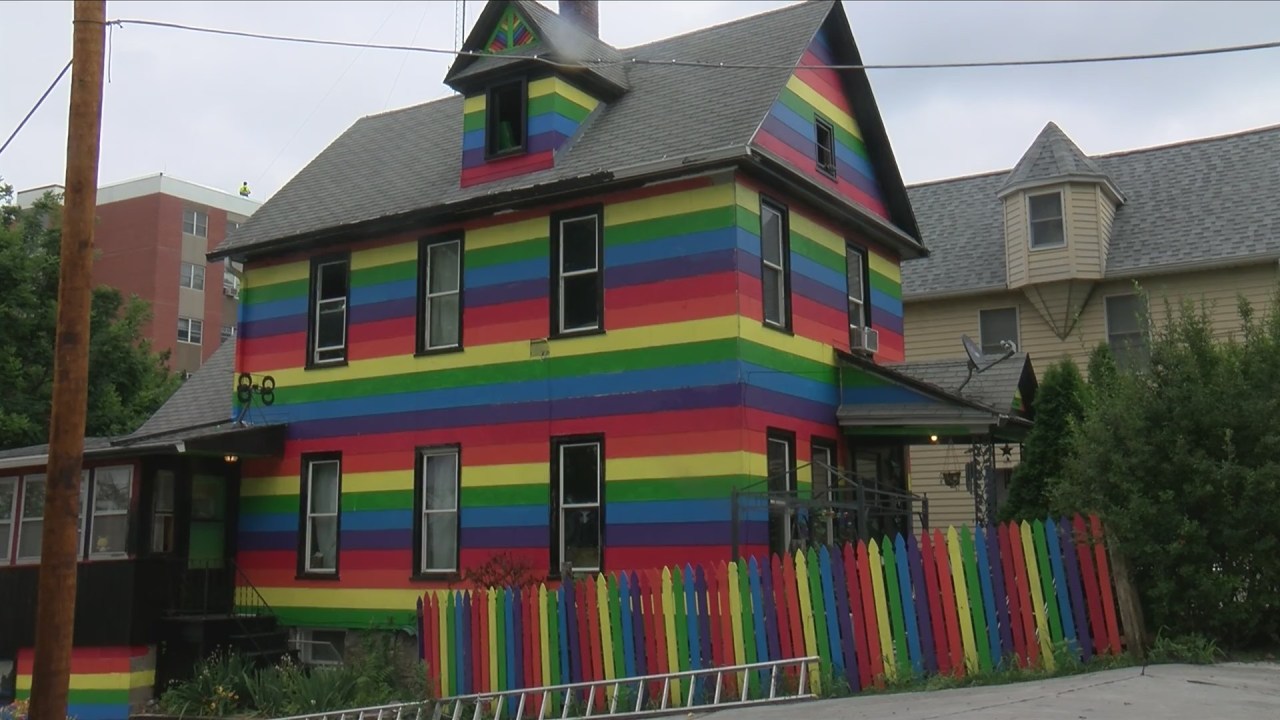Mark Niehaus-Rincon, 67, has lived in Omaha, Nebraska, for 12 years but says “life is too short” to stay there.
He and his husband, Alex, a native of Omaha, have faced the silent treatment from others at their gym for 10 years. They’ve also dealt with uncomfortable and hostile workplace environments and homophobic slurs.
That treatment, combined with Nebraska’s current legislative agenda — which includes restricting women’s access to reproductive health care and limiting the rights of the LGBTQ community — helped push Niehaus-Rincon and his husband to relocate to Chicago. He said they are done compromising and hiding their true identities.
“We are just over it,” Niehaus-Rincon said. “We aren’t welcome here. … I am ashamed to say I live in Nebraska … and I don’t want to be ashamed of where I live.”
Teach your daughter about spending, saving, and investing with Fidelity.
By Fidelity Investments
Niehaus-Rincon is not the only one relocating to Illinois from a state with a conservative legislative agenda and what he describes as an unwelcome environment.
Although there is no data cataloging these moves, real estate experts said a number of households have relocated to Illinois, or are preparing to relocate, in search of a safer and more welcoming environment for the LGBTQ community.
Roman Patzner, a real estate agent with Fulton Grace Realty in Chicago, said relocation activity picked up after the U.S. Supreme Court overturned Roe v. Wade last year, ending the constitutional right to an abortion and leaving many in the LGBTQ community worried about whether their same-sex marriage rights would continue to be protected.
“Because you had what was widely viewed as a federally protected right and the rug was pulled out from (under you),” Patzner said of Roe v. Wade. “In the LGBTQ community, everyone viewed that as a problem for marriage equality, federally.”
Real estate agents said Illinois, which has since signed legislation expanding protections for abortion patients, has emerged as an attractive state for those looking to relocate. But it’s also expensive to move, particularly to larger urban environments like Chicago, where housing tends to be less affordable.
She said she moved for a variety of reasons, including wanting to be closer to family, wanting better support for her children who have learning disabilities and due to the attacks on reproductive, LGBTQ and immigrant rights in Texas.
“As birthing-aged people, it makes us really nervous to have the state be that involved in health care decisions,” said Maldonado, who works for a nonprofit. “Raising kids and not knowing what their futures look like and wanting to be in a state that is not hostile to children felt important.”
Rodrigo Heng-Lehtinen, executive director of the National Center for Transgender Equality, said that many families with transgender children are caught between staying in their hometown, where health care may be restricted, or moving to get the treatment their child needs.
“We are hearing from more and more families all the time who are gravely concerned about this,” said Heng-Lehtinen, who noted that there have been about 135 bills aimed at limiting health care access for transgender individuals this legislative year. “One hundred thirty-five is astounding and unprecedented and really strikes fear into parents’ hearts. … It is very scary for trans people themselves and leaving a lot of families scrambling to figure out what they need to do next.”
The American Civil Liberties Union reports that over the last few years, a record number of bills that target LGBTQ rights have been introduced in state legislatures. For the 2023 legislative session, the ACLU finds that there have been 467 anti-LGBTQ bills introduced in state legislatures, with none reported in Illinois, as of April 18. Abortion is legal in Illinois but many of its neighboring states have banned or are in the process of banning it.
Bob McCranie runs a website called “Flee Red States” as a part of his Texas Pride Realty Group, which is part of a North Texas-based real estate company. He started Flee Red States in June and works with members of the LGBTQ+ Real Estate Alliance across the country to help members of the LGBTQ community move. So far, he said his company has helped about 25 families, including Maldonado’s.
“There is a migration going on. We need to be aware of it and help people, and we need to document it,” McCranie said. “(Right-wing lawmakers) need to know that their hate is causing this.”
Redfin found that about half of 1,023 survey respondents among people who recently moved to a new metro area favored living in a place where it’s illegal to discriminate based on “gender/sexual orientation,” as of 2021.
After considering leaving, some people also decided to stay in Chicago.
Kevin Romero, 41, who grew up in New Mexico, said he knew in high school that he wanted to move closer to a big city to find a larger LGBTQ community and because he was afraid he wouldn’t be accepted elsewhere as a gay man.
In Chicago since 2007, he now lives in Andersonville with his husband, Philip Maziarz, as they wait for renovations to be completed on a house they bought in 2020 in Uptown.
Before buying the Uptown home, the couple considered buying a house in the western suburbs where Romero works in IT for a health care group. But the couple, Romero said, decided to stay in the city because they felt they would be better supported and less singled out because of the larger LGBTQ population.
“The last time I was called the word ‘******’ was in the western suburbs of Chicago,” Romero said. Shortly before the pandemic, when he was walking back to his car from a Starbucks in Downers Grove, someone rolled down their window and shouted that at him. “That experience helped frame a choice — about whether we would move out of the city. … There are still a lot of feelings that other people feel the right to express in areas where LGBTQ people are less common.”

 www.chicagotribune.com
www.chicagotribune.com
He and his husband, Alex, a native of Omaha, have faced the silent treatment from others at their gym for 10 years. They’ve also dealt with uncomfortable and hostile workplace environments and homophobic slurs.
That treatment, combined with Nebraska’s current legislative agenda — which includes restricting women’s access to reproductive health care and limiting the rights of the LGBTQ community — helped push Niehaus-Rincon and his husband to relocate to Chicago. He said they are done compromising and hiding their true identities.
“We are just over it,” Niehaus-Rincon said. “We aren’t welcome here. … I am ashamed to say I live in Nebraska … and I don’t want to be ashamed of where I live.”
Teach your daughter about spending, saving, and investing with Fidelity.
By Fidelity Investments
Niehaus-Rincon is not the only one relocating to Illinois from a state with a conservative legislative agenda and what he describes as an unwelcome environment.
Although there is no data cataloging these moves, real estate experts said a number of households have relocated to Illinois, or are preparing to relocate, in search of a safer and more welcoming environment for the LGBTQ community.
Roman Patzner, a real estate agent with Fulton Grace Realty in Chicago, said relocation activity picked up after the U.S. Supreme Court overturned Roe v. Wade last year, ending the constitutional right to an abortion and leaving many in the LGBTQ community worried about whether their same-sex marriage rights would continue to be protected.
“Because you had what was widely viewed as a federally protected right and the rug was pulled out from (under you),” Patzner said of Roe v. Wade. “In the LGBTQ community, everyone viewed that as a problem for marriage equality, federally.”
Real estate agents said Illinois, which has since signed legislation expanding protections for abortion patients, has emerged as an attractive state for those looking to relocate. But it’s also expensive to move, particularly to larger urban environments like Chicago, where housing tends to be less affordable.
Legislative agendas create fear
Lizzie Maldonado, 35, who uses she or they pronouns, moved her family to Illinois — where she and her husband grew up — last summer after having lived in Fort Worth, Texas, for nearly 15 years.She said she moved for a variety of reasons, including wanting to be closer to family, wanting better support for her children who have learning disabilities and due to the attacks on reproductive, LGBTQ and immigrant rights in Texas.
“As birthing-aged people, it makes us really nervous to have the state be that involved in health care decisions,” said Maldonado, who works for a nonprofit. “Raising kids and not knowing what their futures look like and wanting to be in a state that is not hostile to children felt important.”
Rodrigo Heng-Lehtinen, executive director of the National Center for Transgender Equality, said that many families with transgender children are caught between staying in their hometown, where health care may be restricted, or moving to get the treatment their child needs.
“We are hearing from more and more families all the time who are gravely concerned about this,” said Heng-Lehtinen, who noted that there have been about 135 bills aimed at limiting health care access for transgender individuals this legislative year. “One hundred thirty-five is astounding and unprecedented and really strikes fear into parents’ hearts. … It is very scary for trans people themselves and leaving a lot of families scrambling to figure out what they need to do next.”
The American Civil Liberties Union reports that over the last few years, a record number of bills that target LGBTQ rights have been introduced in state legislatures. For the 2023 legislative session, the ACLU finds that there have been 467 anti-LGBTQ bills introduced in state legislatures, with none reported in Illinois, as of April 18. Abortion is legal in Illinois but many of its neighboring states have banned or are in the process of banning it.
Bob McCranie runs a website called “Flee Red States” as a part of his Texas Pride Realty Group, which is part of a North Texas-based real estate company. He started Flee Red States in June and works with members of the LGBTQ+ Real Estate Alliance across the country to help members of the LGBTQ community move. So far, he said his company has helped about 25 families, including Maldonado’s.
“There is a migration going on. We need to be aware of it and help people, and we need to document it,” McCranie said. “(Right-wing lawmakers) need to know that their hate is causing this.”
Redfin found that about half of 1,023 survey respondents among people who recently moved to a new metro area favored living in a place where it’s illegal to discriminate based on “gender/sexual orientation,” as of 2021.
After considering leaving, some people also decided to stay in Chicago.
Kevin Romero, 41, who grew up in New Mexico, said he knew in high school that he wanted to move closer to a big city to find a larger LGBTQ community and because he was afraid he wouldn’t be accepted elsewhere as a gay man.
In Chicago since 2007, he now lives in Andersonville with his husband, Philip Maziarz, as they wait for renovations to be completed on a house they bought in 2020 in Uptown.
Before buying the Uptown home, the couple considered buying a house in the western suburbs where Romero works in IT for a health care group. But the couple, Romero said, decided to stay in the city because they felt they would be better supported and less singled out because of the larger LGBTQ population.
“The last time I was called the word ‘******’ was in the western suburbs of Chicago,” Romero said. Shortly before the pandemic, when he was walking back to his car from a Starbucks in Downers Grove, someone rolled down their window and shouted that at him. “That experience helped frame a choice — about whether we would move out of the city. … There are still a lot of feelings that other people feel the right to express in areas where LGBTQ people are less common.”

LGBTQ residents moving to Illinois from states with conservative agendas: ‘I don’t want to be ashamed of where I live’
Mark Niehaus-Rincon, 67, has lived in Omaha, Nebraska, for 12 years but says “life is too short” to stay there. He and his husband, Alex, a native of Omaha, have faced the silent treatm…



